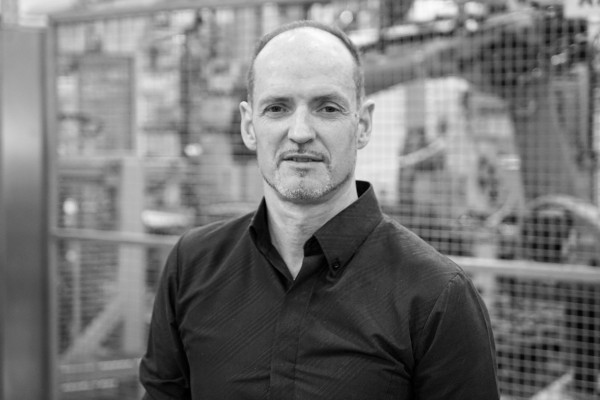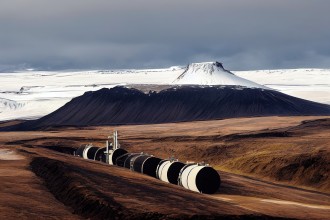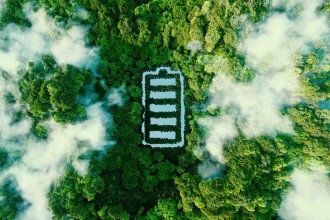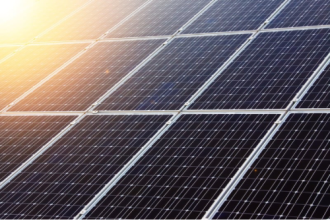Personal Journey and Commitment to Sustainability
Please tell us briefly about yourself and your connection to the topic “Industrial Sustainability.”
“As a diplomaed product designer from the era of 'less is more,' which fits well into today's context, I have always questioned the necessity of a product during its creation—where does it come from, what is it used for, and what happens to it in the end. My credo over the years has been, 'replace materials with knowledge.' After 25 years working with hidden champions of the technical industry and SMEs in southern Germany, my role as a father of five increasingly highlighted my responsibility for their future. I could not remain a part of the unchecked globalization and its destructive behaviors. The turn came in 2013 when I met Christoph Hiemer, leading to my deep dive into biochar and the founding of carbonauten. Initially, getting investor support was challenging due to confusion around CO2 and decarbonization, which reinforced my belief that the most sustainable product is the one that isn't produced. This realization pushed me toward advocating for industrial sustainability.”
Understanding Sustainability in Industry
What can be understood by sustainability in the industry, and where are the differences?
“Sustainability is a flexible term, often misused. For example, the cement industry installs Direct Air Capture as a license to continue as before. Real sustainability would involve massive investment in R&D to develop cement-free binders. Or consider manufacturers of wind turbines and photovoltaics—what happens at the end of life, with technology that has no overriding disposal solutions other than as hazardous waste? Therefore, for me, restorative and especially regenerative systems are the benchmark. Yet, the efforts seem insufficient with last year witnessing a 3% increase in CO2 emissions, revealing a critical need for transformative action in the industry.”
Practical Applications of Carbonauten's Innovations
What do current use-cases from your company (carbonauten) look like in practice?
“We utilize woody biomass residues in a material and energetic cascade, transforming them into biochar, pyrolysis oil, and synthesis gas in our first stage of value creation. In the second stage, we refine these into ready-to-use semifinished products: biochar-filled granulates for the plastics industry, biochar-based, pH-neutral granulates for agriculture, extracts from bio oils for various industries, synthesis gas for base-load energy generation, E-fuels for metallurgy and construction, and CO2 certificates for the voluntary market.”
The Crucial Role of Carbon in Sustainability
To what extent does the topic of carbon play a crucial role for you?
“Everything we do is (bio)carbon-based, and thus the entire business model revolves around it.”
Industry Preparedness and Investment in Sustainability
How prepared is the industry to deal seriously with the theme of sustainability? Do you notice a willingness to invest?
“Since 2020, we have noticed increasing interest as the CO2 pricing gained momentum. However, despite companies claiming sustainability, real breakthroughs are far and few. Efforts grow, but much appears hesitant and not consistent enough. Regarding investments, while some sectors see significant funds, particularly from abroad, the inertia in investment departments within German industry is reflective of a broader visionlessness. Success stories from leaders like Steve Jobs and Elon Musk highlight the gap created by a lack of scientific and technological leadership.”
Prospective Technologies for Decarbonization
What technologies are prospectively most relevant for the decarbonization of the industry?
“Technologies like reforestation, ocean mineralization, Direct Air Capture, and biochar are named by institutes like Mercator as having relevant effects. Reforestation and biochar seem most efficient, producing economically useful products while sequestering CO2 effectively. However, we need many solutions for this complex problem, and nature, being maximally efficient, offers the best lessons through its simple yet effective processes.”
Timeline for Achieving Sustainable Industry
What timeline are we looking at when we talk about a sustainable industry in Germany?
“Based on past experiences, I envision a timeline of at least 20 years for a significant transformation. This estimate is based on the pace at which changes are currently occurring and the expected time it will take the new generation, deeply affected by climate issues, to rise to decision-making roles. Challenges remain, notably from potentially obstructive political forces. There is a critical need for stronger and unconditional financial support for companies like ours, facing hurdles from traditional investment avenues in Germany.”
Torsten Becker's insights point toward a future where sustainability is not merely about reducing harm but restoring and regenerating our ecosystems through industrial practices. The path ahead is complex but with innovative leaders and companies like carbonauten, a sustainable industrial landscape is a palpable future.
About Torsten Becker
• Business owner of Agentur Becker (1989-2015)
• Diploma in Product design (1985-1989)
• Founder of Carbonauten (2017)
• He founded carbonauten in 2017 together with Christoph Hiemer to offer industry solutions for CO2 emissions and costs
• To do this, they extract CO2 from the atmosphere on a decentralised and industrial basis and store it permanently in novel NET Materials
• Other than that, carbonauten says that they create good, above-average paid and secure jobs for economically and socially disadvantaged people at their locations worldwide.





